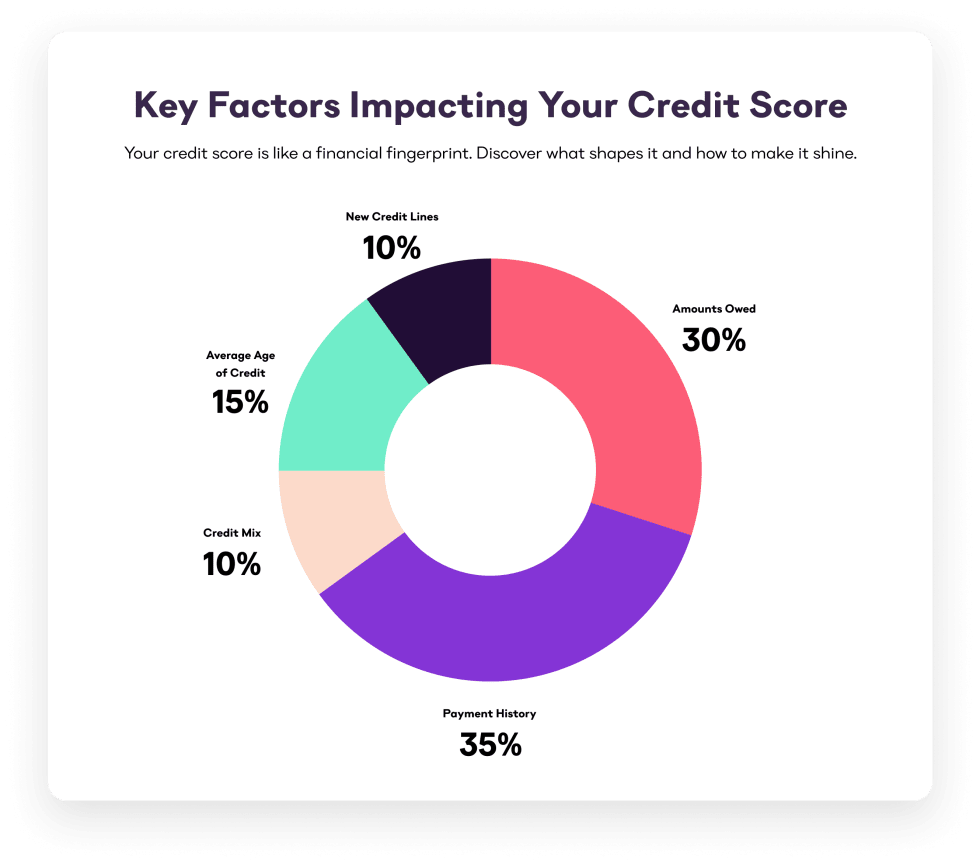What Credit Score Do You Need to Rent an Apartment in 2024?

If you're trying to figure out what credit score you need to rent an apartment, you're not alone. Renters are usually concerned about having a low credit score for renting. Moreover, as you'll soon learn, credit scores for renters vary greatly by both location and building type. Here’s what you need to know about getting approved for an apartment and how your credit score impacts the rental process.
Guide to Credit Scores for Renters
What Credit Score Do You Need to Rent an Apartment?
A 2020 report by Rent Cafe found that the average credit score for U.S. renters was 638. However, they found credit score averages varied widely by city and even rental type. In San Francisco, for example, the average credit score was 719, whereas it was 580 in Arlington, TX.
The same research also found that building type affected credit score averages. High-end buildings saw an average score of 669, while low-end units had an average of 597.
Anecdotally, many renters report that a score of 650 or above is often requested for approval of a rental application. In general, landlords are unlikely to approve you with poor credit history, but might consider you if you can demonstrate current financial stability.
The bottom line is that the score you need varies by location, but you're likely to get approved in most places if your score is at least 650. If you fall below that, however, that doesn't mean you won't be able to rent, as is clear from the national average and examples of regional averages above.

What Do the Numbers in a Credit Score Mean?
While a desirable credit score is usually in the eye of the beholder, there is a widely used scale to measure the ranges:
- 300-579: Poor
- 580-669: Fair
- 670-739: Good
- 740-799: Very good
- 800-850: Excellent
Each of the three major credit reporting agencies (Experian, TransUnion, and Equifax) vary in how they determine credit scores. As a result, there could be some differences, but these ranges give you an idea of what to expect.
How is Credit Score Determined?
- Payment history: This shows how often you've paid your credit cards and loans over the length of your credit history.
- Accounts owed: The amount you owe, or outstanding debt, can determine 30% of your credit score and impact your credit profile.
- Average age of credit: Credit score algorithms look at how long all of your accounts have been open and calculate your "credit age."
- New credit lines: When you open a new credit card or take out a loan, it can lower the average of your total accounts.
- Credit mix: Your credit mix includes any mortgages, loans, credit cards, and other factors that impact your credit score.
Each credit reporting agency looks at the weight of these components differently. For instance, Experian uses FICO, which offers a slightly different distribution than the system used by TransUnion.

Why Do Landlords Look for Renters with Good Credit?
Several factors that determine your credit score also make you more desirable as a tenant, and therefore more likely to be approved. For example, a solid payment history shows that you are willing and ready to meet your financial obligations, as does a long credit history. Also, the amount that you owe helps your landlord understand whether you'll be able to afford rent alongside your other bills. All of this information helps assure your landlord that you will make rental payments on time.
How to Rent an Apartment with Bad Credit
If you can’t meet the minimum credit score to get an apartment, there are still ways to secure a lease. We wrote a whole guide on renting with no or bad credit, but here is the overview:
- Be honest & Explain Your Situation: Your landlord will find out your credit score, so it’s best to be upfront and honest from the start. Landlords are often open-minded to poor credit, especially if you explain you were dealing with personal situations like medical bills or divorce.
- Look for Private Landlords: Private landlords are often easier to negotiate with than large rental companies. Learn more about finding private landlords in this guide.
- Offer a higher security deposit: Give landlords peace of mind by offering a higher security deposit that could be used if you can’t make rent.
- Pay upfront: You can offer to pay your rent upfront for several months at a time to assure your landlord they will recoup their expenses.
- Provide proof of savings: A healthy savings account can go a long way to securing a lease with a bad credit score.
- Provide plenty of references: A credit score only tells part of your story, so bring along landlord and employee references that speak to your reliability.
- Use a cosigner: A cosigner is legally obligated to uphold the lease terms and pay rent if you don't.
- Consider a guarantor: Guarantors are similar to cosigners and are legally required to pay your rent if you cannot do it yourself.
- Find a roommate: Landlords are usually more confident when roommates split the costs and lower expenses for a tenant with bad credit.
It’s not easy to score an apartment with a bad credit score, but it can be done. You’ll need a combination of the above strategies and determination to reach your goals.

Simple Ways to Improve Your Credit Score
Bad credit isn’t the end of your rental journey. There are still ways you can improve your credit score and position yourself as a more desirable tenant.
- Report your payments: Use a rent reporting service to make sure your on-time payments are reporting to the three major credit bureaus. This will ensure that your rent goes toward improving your credit.
- Don’t close old credit cards: Closing a credit card could decrease your credit limit and increase your utilization rate, which could negatively impact your score.
- Pay what you can, as often as you can: Making regular payments on credit cards and loans helps chip away at your debt and improve your score.
- Request a credit increase: Increasing a credit limit lowers your credit utilization ratio and can give your credit score a boost.
- Increase your credit: If you get denied a credit increase, you can try to increase it yourself by paying off debt or taking out a new card.
- Use autopay: Autopay your credit cards, so the money automatically comes out of your account and goes towards your debt.
- Limit hard inquiries: When a lender or company reviews your credit report during a loan application or credit card process, it's recorded as a hard inquiry. As a result, it can negatively impact your score over time.
- Only Use 30% of your available credit: Your credit utilization makes up 30% of your credit score, and going above that number drags down your score.
- Report your on-time rental payments Use a rent reporting service to ensure that the credit agencies see you on-time rent payments.
Credit scores fluctuate and can rapidly climb over time. Keep trying to improve your score, even if you don’t feel like it’s making much difference. You’ll see positive changes as your efforts pay off.
Looking for a New Apartment?
The question isn't always, "What credit score do you need to rent an apartment?" but what can you do to improve your credit? Your credit fluctuates regularly and can improve with some simple steps, like paying down debt and increasing your available credit.
Stay proactive and talk to prospective landlords about your situation can also help secure your next lease. They may also agree to a more expensive short-term lease that reduces their risk of renting to someone with bad credit.
Ready to find a new place? Use Apartment List's quiz to find a place matched with your ideal location, price point, and amenities.
FAQs about Credit Scores for Renters
Do You Need Credit to Rent an Apartment?
Most landlords will require credit history to rent an apartment. However, no credit check apartments do exist, and the guide we have linked here can help you find them.
Does Renting Build Credit?
Renting an apartment can sometimes improve your credit score if you use a rent reporting service to share your on-time payments with the three major credit bureaus.
What Do Landlords Look For on Credit Reports?
Landlords look at your credit score, payment history, bankruptcies, foreclosures, and overall activity. They may overlook an issue like bankruptcy if it's from an issue out of your control, like medical bills, and. you have a solid on-time payment history and stable finances.
Is 500 a Good Credit Score for Renting an Apartment?
Unfortunately, 500 is considered a poor credit score and may cause difficulties for you when you start renting. According to Rent Cafe's 2020 survey, the city with the lowest average credit score for renters was Arlington, TX, with a score of 580.
Which Credit Bureau is Most Used for Apartments?
Landlords use Equifax, Experian, and TransUnion to review your credit report and score. There is no industry standard for apartments, but your landlord may prefer using one report over another.
How Do You Fail a Credit Check for Renting?
Failing a credit check for renting depends on your landlord, and a poor credit score may lead to an automatic rejection. Or your landlord may consider your circumstances, take a larger deposit, and request a guarantor.
Do Apartments Do Hard Credit Checks?
Most credit checks for renting are soft checks, but you should ask prospective landlords in advance if you're concerned about hard pulls on your report.
Share this Article






